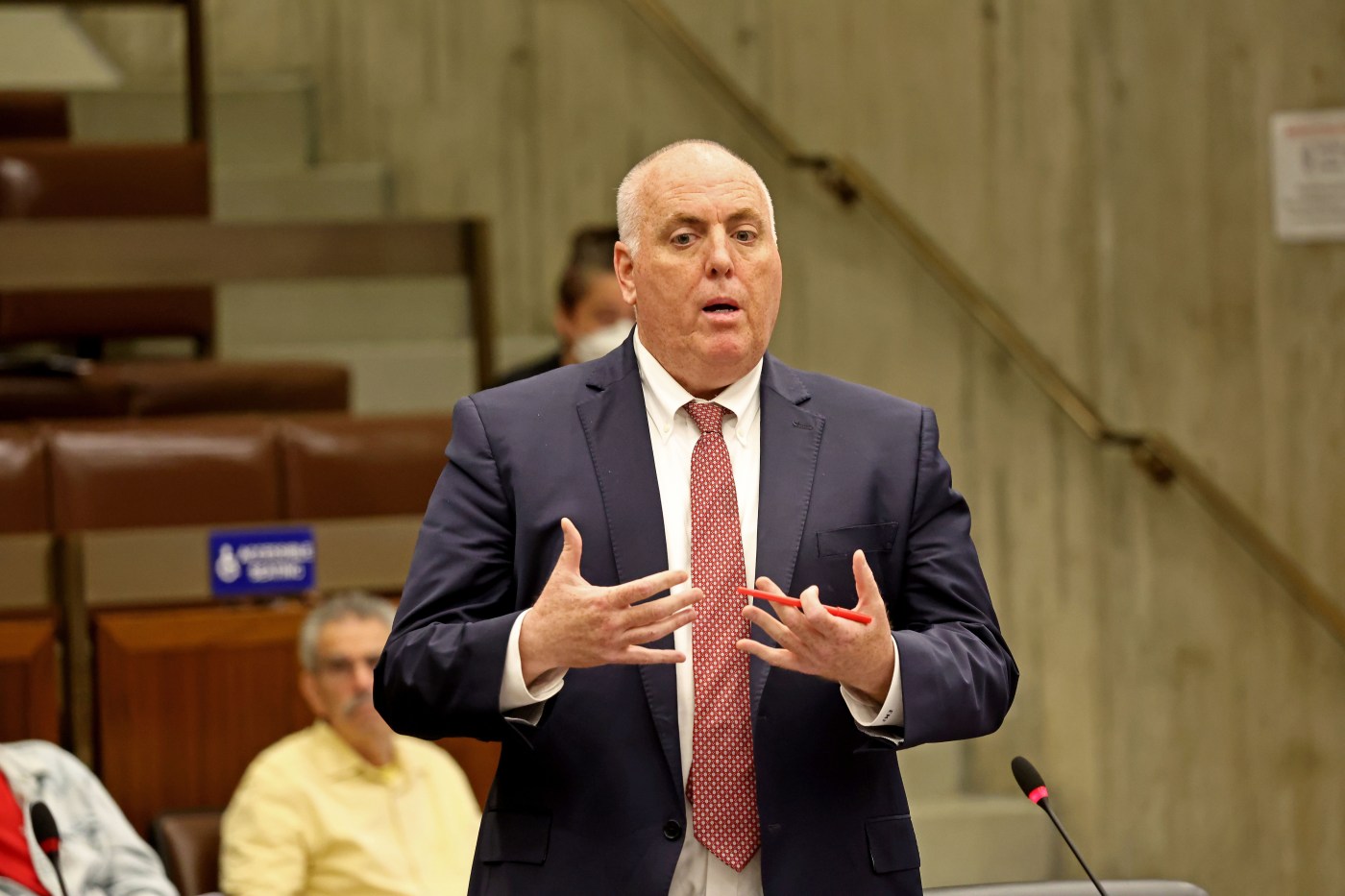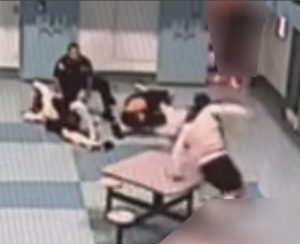
Boston City Council to discuss alternative to Mayor Wu’s plan to hike business taxes
Two Boston city councilors opposed to the mayor’s controversial plan to raise commercial tax rates introduced an alternative option that would target $45 million in city funds toward homeowners that would be most burdened by a hefty tax hike.
Councilors Ed Flynn and Erin Murphy said Wednesday that such an investment would provide tax relief to 20% to 30% of Boston households with home values assessed at or below $1.5 million, thus negating the need for the city-sponsored legislation the mayor proposed as a means to provide similar relief to homeowners.
The investment of $15 million annually over a three-year period floated in the councilors’ alternative plan mirrors the exact amount Mayor Michelle Wu agreed to provide to small businesses expected to be most impacted by a commercial rate increase, as part of compromise legislation she agreed to with House leadership.
“We need a more reasonable means-tested policy approach that targets relief to cash-constrained Boston residential taxpayers,” Flynn and Murphy wrote in a hearing order outlining the proposal.
“Instead of appropriating $15 million annually to help small businesses, the city could invest the $15 million in funding directly into Boston residents we intend to help, and eliminate the need for a property tax shift that would further harm the commercial class during a historic crisis,” their order states.
Such an investment would ensure that 20% to 30% of Boston households would be “protected” with a property tax increase no greater than 3.5%, the order states.
By comparison, Mayor Wu has stated that if her tax bill were not to pass the Legislature — it’s cleared the House but not the Senate — homeowners could be saddled with a double-digit property tax increase next year, of roughly 16.5%.
The potential “shock” of such a tax increase, the mayor has said, is due to declining commercial property values that are expected to lead to a loss of commercial tax revenue, thereby pushing more of the tax burden onto residents.
That particular scenario is due, in part, to the city’s budgetary structure that derives roughly three-quarters of annual revenue from property taxes, Wu has said.
The councilors’ push for an alternative comes as talks are reportedly back on over the mayor’s plan to temporarily tax businesses beyond the state limit, after it stalled in the Senate in formal sessions.
A private meeting between Senate President Karen Spilka, Mayor Wu, Boston senators and members of the business sector, which has been critical of the bill, is set for Thursday, a source told the Herald after it was first reported by Politico.
The mayor was also asked about the plan after she delivered a wide-ranging speech on the state of the city’s economy at a Greater Boston Chamber of Commerce event Wednesday morning, where she described it as the best and only feasible option she saw the city taking to provide the intended tax relief to homeowners.
Pulling from the city’s roughly $1 billion in reserves or cutting about $200 million from a budget that grew by 8% this fiscal year, the mayor said of alternatives suggested by critics of her plan, “is not a fiscally responsible choice for the city,” at a time when unemployment is low and the economy is recovering.
Related Articles
Senate President Karen Spilka, Mayor Michelle Wu plan to discuss tax proposal, sources says
Office pace: Wu encouraged by return of workers to Boston workplaces
Lawsuit names Boston, MBTA employees in ‘wild case’ where kin allegedly swindled Dorchester man out of $1M home
City Councilors bring Boston school bus issues before state education board
Mayor Wu names new head of Planning Department
“So we are looking for this alternative solution,” Wu said at the event. “It’s certainly not the easiest one to get. Believe me, if I didn’t have to ask for this, I would be trying to pursue a different method, because getting through all these levels of approvals is tough.”
“But it is the one that provides balance, the mayor added, “while managing this unique moment where we are in a major transition for our economy and therefore our tax base.”
The two councilors say their proposal would accomplish the same goal, however, which Flynn says is to protect seniors and working families from “dramatic” tax increases and keeping residents in their homes.
“Now is not the time for us to raise property taxes in Boston,” Flynn said. “Raising taxes on an economically challenging landscape will hurt Boston for many years, and this would impact jobs and our economic competitiveness, services and many livelihoods.”
“It is time that we look to cut city spending, and review our hiring practices during economically challenging times,” he added. “It is critical that we practice fiscal discipline in Boston.”
The measure was referred to the Committee on Ways and Means for further discussion, but it did not garner any apparent support. No other councilors signed onto the hearing order.


